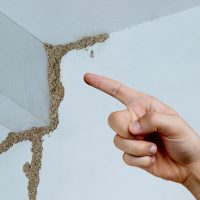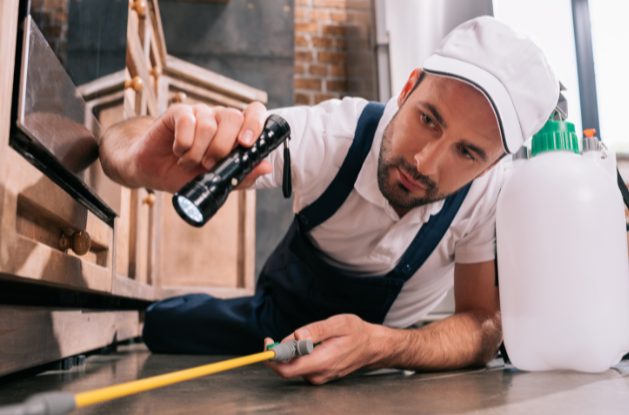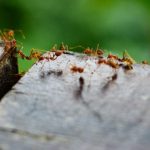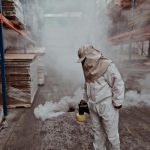Pest infestation in office spaces is a common phenomenon, as the wet areas provide the perfect spots for cockroaches, ants, and rodents.
Notably, these pests are not just a nuisance, but also a significant health risk, can cause property damage, and are even a threat to your firm’s reputation, which is crucial for maintaining a professional and inviting workspace.
Importantly, understanding why the bugs have made your office kitchen a destination is the first step in preventing this issue. Therefore, in this post, we’ll explore the things that attract pests and how to eliminate them.
Causes of Pest Infestation in Office Spaces
1. Food Wastages and Poor Sanitation Practices
Usually, trash, spills, and crumbs attract insects, even a small amount of food, which can sustain pests for a relatively long time. Notably, break rooms in offices typically contain crumbs of food in the sink, on the counter space, or in the rear of the machines. Additionally, grease splatter on the stove or microwave is likely to attract cockroaches, as they are attracted to a variety of substances, including grease, starch, and sugar.
To prevent this, you should educate the office occupants about proper sanitation procedures. For instance, let each one ensure that all surfaces are wiped clean with a wet, soapy cloth after use, and clean up any food spillage. Additionally, office colleagues should ensure that the trash cans are empty and use sealed bins to eliminate pest-attracting odors.
Importantly, getting professional cleaners to clean the office regularly can play a crucial role in this process. They can use commercial steam cleaners to clean crumbs from hidden crevices and cracks, leaving no avenue open for pests.
2. Poor Waste Management
Since rodents, cockroaches, and ants scavenge in trash in search of food, open or uncovered dustbins strongly attract these pests. The rotting food waste emits foul odors that attract pests from both within and outside the building..
Therefore, to ensure proper waste management, office kitchens must use trash bins with tightly fitting lids and ensure that the bins are emptied at least daily.
Additionally, it is essential to clean the bins thoroughly to remove any residue. The implementation of this waste disposal plan interrupts the feeding cycle of the pest and minimizes the risk of pest infestation in offices.
3. Moisture and Water Sources
Pests need water to survive, and office break rooms provide a damp haven with sinks, dripping pipes, and even damp sponges in most cases. Roaches and ants are particularly attracted to these wet areas. Also, termites, although less common in the kitchen, can be drawn to damp places as well.
Therefore, to ensure a dry office kitchen, replace any loose pipes where applicable and maintain the drain areas and sinks to prevent moisture.
Importantly, use dehumidifiers as needed to maintain optimal humidity levels, especially in storage areas. This not only keeps the infestation away but also prevents mold and structural weakness.
4. Structural Weakness and Clutter
Crevices in tiles or walls, or gaps under pipes, are all entry points for pests. Then, the pests find disorganized storage areas to be ideal for hiding. For instance, while rodents nest in disorganized files or boxes, cockroaches and ants nest in dark, cluttered places.
However, you can prevent pest infestations by sealing all likely entry points with wall putty or other suitable materials. Importantly, store merchandise in sealed cupboards and not easily chewable cardboard boxes. Also, clean up and organize the pests’ hiding places.
5. Negligent Employee Habits
Regardless of how organized an office is, poor habits can be the downfall of pest control in those office spaces. For instance, desk snacking, not covering food, or procrastination when it comes to cleaning are just a few of the negligent employee habits that can cause pest infestation in office spaces.
But you can encourage responsibility by having well-defined office policies. For instance, establish designated areas for employees to eat in the office and expect them to clean up after themselves. Importantly, ensuring ongoing training and reminders about the importance of pest prevention will ensure that everyone contributes their fair share, making each employee an integral part of the pest prevention process.
Pest Infestation in Office Control and Management
Hiring a professional pest control company ensures that your office is always one step ahead in preventing pests. Mainly, while DIY methods work well, some pest infestations require professional treatment. The qualified pest control specialists can identify vulnerabilities with routine inspection and customized treatments.
Additionally, the pest control specialists implement pest control and prevention measures that combine prevention, monitoring, and control in a single package, which is ideal for office environments.
Notably, for offices in Singapore, applying monthly pest control treatment is recommended. The regular treatments include odorless, non-stain chemicals that are safe to use in offices.
Conclusion
While office spaces will never cease to be an attraction for pests, proactive pest control can help prevent infestations. Mainly, hire a professional pest control company to ensure that your prevention methods are thorough and effective, and your office remains pest-free.
The professional pest control companies have the expertise, tools, and resources to identify and eliminate pest problems, saving you time and effort. They can also provide ongoing monitoring and maintenance to prevent future infestations.
Lastly, for professional pest control and extermination services in Singapore, you can contact us. We offer specialized pest control solutions for offices. We will ensure your office is pest-free, comfortable, and safe for all.








































